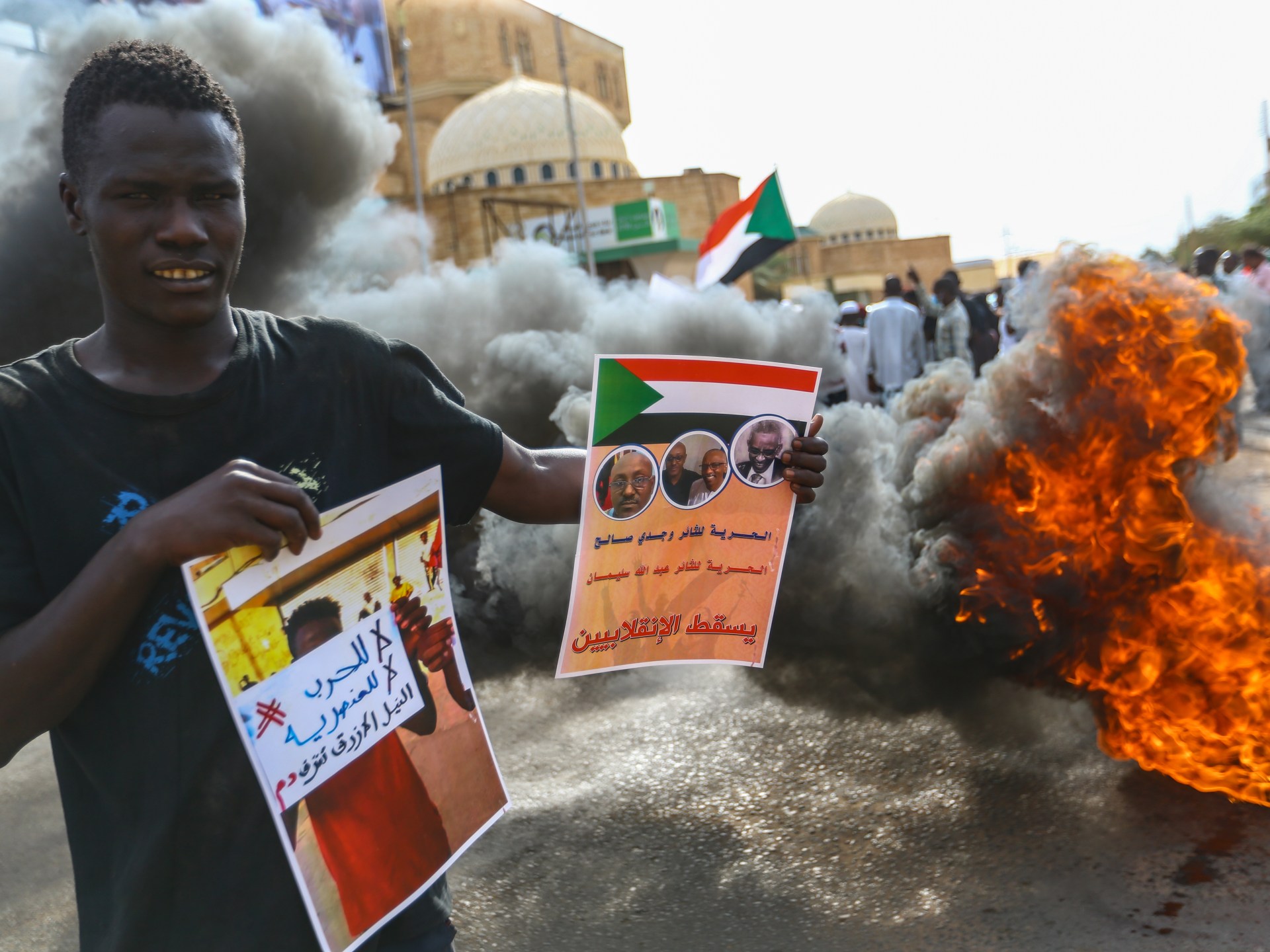US Secretary of State Anthony Blinken said it was time to "end military rule" in Sudan, amid calls for mass demonstrations on the anniversary of what the opposition calls a "military coup", while the army appointed a new leader for Blue Nile state after bloody tribal clashes.
Blinken said - Monday evening in a tweet on Twitter - "Almost a year ago today, the Sudanese army turned against a civilian-led government, undermining the democratic aspirations of its people. It is time to end military rule."
Almost one year ago today, the Sudanese military overthrew a civilian-led government and demolished the democratic aspirations of its people.
The time is now to end military rule.
— Secretary Antony Blinken (@SecBlinken) October 24, 2022
It also called on 13 countries, the European Union and the tripartite mechanism - which includes the United Nations, the African Union and the Intergovernmental Authority for East Africa (IGAD) - to form a civilian-led transitional government in Sudan, on the occasion of the first anniversary of exceptional measures imposed by the army chief, Lieutenant-General Abdel Fattah Al-Burhan.
This coincided with calls from the resistance committees and political forces to come out in "millions" on Tuesday 25 October, to demand full civilian rule and the removal of the military from power.
On the other hand, the authorities announced the closure of the Nile bridges in the capital, Khartoum, except for the Soba and Halfaya bridges, and stressed their keenness to "protect the participants in the processions and peaceful marches that express the will of the youth."
She added that the security services are working to preserve the lives and property of citizens, and have secured the right of all segments participating in the processions to practice peaceful expression guaranteed by law.
On October 25, 2021, Al-Burhan imposed measures, including the dissolution of the Transitional Council of Ministers and the Sovereignty, the dismissal of governors, the arrest of officials and politicians, and the declaration of a state of emergency, which the rejectionists considered a military coup.
Blue Nile events
On the other hand, the Sudanese army announced on Monday that "a new commander has been appointed for the Blue Nile Military Region, Major General Rabea Abdullah Adam, in the context of advancing efforts to address the security situation in the region, against the background of the recent unfortunate events."
The official spokesman of the Sudanese Armed Forces, Nabil Abdullah, said that the military leadership had set up a fact-finding committee on Saturday to assess the security situation in the region, headed by the Deputy Chief of Staff for Operations, Khaled Abdeen Al-Shami, and representatives of the Ministry of Interior and the General Intelligence Service.
In a statement to Al-Jazeera, the governor of the Blue Nile region, Ahmed Al-Omda, said that the clashes renewed in "Village Eight", near the city of Damazin, and were taken over by the regular forces.
The mayor accused the "Sudan People's Liberation Movement", led by Abdelaziz Al-Hilu, of implementing a scheme to separate the region from Sudan and creating chaos.
The mayor called for a military resolution of what he described as the separatist agenda, and the application of the law by arresting those involved, to put an end to the rebellion that seeks to dismantle the Sudanese state, as he put it.
He said that the situation will return to calm, after the great response from the center to achieve stability in the region.
Meanwhile, the administration of the Blue Nile University in Sudan announced the suspension of studies in all its faculties until further notice;
Because of the turbulent conditions in the Blue Nile region.
The Commissioner for Humanitarian Aid in the state told the island that food supplies ran out in the displacement camps, and he made an urgent appeal to humanitarian organizations to provide aid to those fleeing the hell of tribal war.
On Sunday, angry protesters set fire to the headquarters of the Secretariat of the Blue Nile Regional Government, and looted an arms store, according to local sources.
On Friday, Governor Ahmed Al-Omda - whose dismissal by protesters is demanding - imposed a state of emergency in the state, giving security forces full powers to "stop" the tribal fighting.
In this context, the tripartite mechanism in Sudan said - in a statement - "We express our deep sadness and regret for the killing of a protester in Khartoum yesterday (Sunday), and we call for a credible investigation into the death to ensure that the perpetrators are held accountable."
The tripartite mechanism added that the recent loss of civilian life and the tragic incidents of violence in Blue Nile and West Kordofan are a stark reminder of the urgent need for a political solution that can finally end the current situation.
In turn, the United Nations Office for Humanitarian Affairs (OCHA) said - in a statement - that reports are still that the fighting continues and the situation is tense since the outbreak of tribal violence in Wad Al-Mahi in Blue Nile state on October 13.
The statement stated that reports indicate that about 250 were killed and more than 572 were injured, while houses were burned in villages in the Wad Al-Mahi area, and about 7,000 were displaced from the area.
In total, more than 70,000 people have been displaced within Blue Nile State and to neighboring states since mid-July, according to the UN office.

